January 2024 Election Heat Map
Key elections around the world set for January 2024.
Key elections around the world set for January 2024.
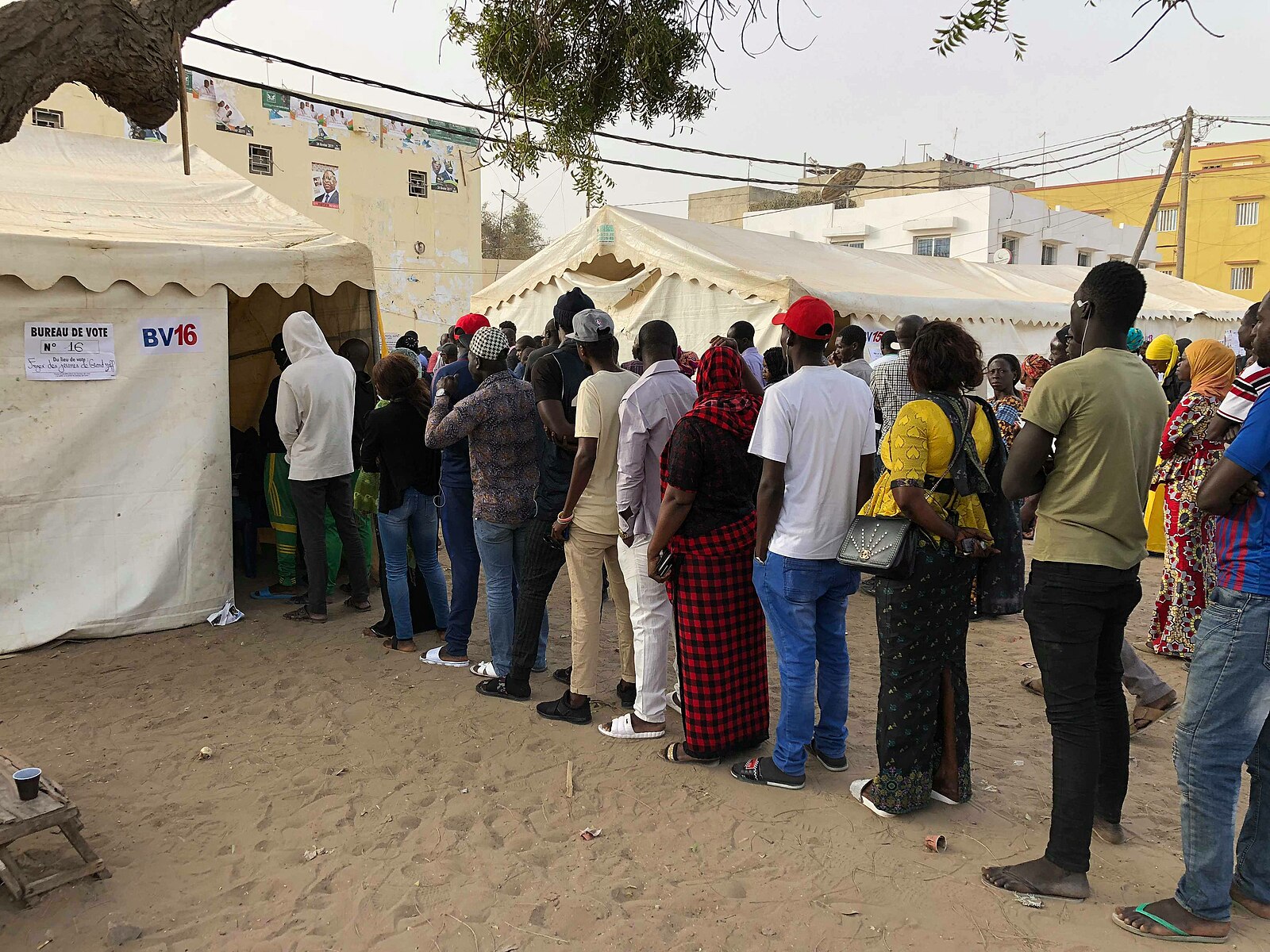
January 29, 2024
A weekly review of news and analysis of elections in Africa, usually posted on Mondays and occasionally updated throughout the week.
 Voters in line during Senegal’s 2019 elections. Photo credit: Wikimedia/VOA Seydina Aba Gueye (public domain)
Voters in line during Senegal’s 2019 elections. Photo credit: Wikimedia/VOA Seydina Aba Gueye (public domain)
Senegal Presidential and Legislative Elections: February 25, 2024
Melissa Chemam, RFI (January 23, 2024): Human Rights Watch warns of Senegal repression ahead of elections
AP (January 22, 2024): Two opposition leaders in Senegal are excluded from the final list of presidential candidates
Africanews and AP (January 22, 2024): Senegal: Sonko, Wade not listed among official candidates of Feb.25 presidential polls
South Africa General Elections: Spring 2024
Gerald Imray, AP (January 29, 2024): South Africa’s ruling ANC suspends former president Zuma for backing a new party in elections
Bloomberg (January 23, 2024): Support for ANC will continue to decline following South Africa elections, pollster predicts
Chad Presidential Election: By October 2024 (delays possible)
Reuters (January 24, 2024): Putin Meets Chad Junta Leader as Russia Competes With France in Africa
AFP (January 23, 2024): Chad President Heads to Moscow for Talks With Putin
Tanzania General Elections: October 2025 (due)
Stratfor (January 25, 2024): Opposition Rallies Test Tanzania’s Commitment to Political Liberalization
RFI (January 24, 2024): Tanzania’s opposition rallies against ‘cosmetic’ electoral reforms
Comoros General Elections: January 14, 2024
Faiza Soule Youssouf, AFP (January 24, 2024): Comoros court confirms president’s re-election, opposition cries foul
Democratic Republic of the Congo General Elections: December 20-27, 2023
International Crisis Group (January 26, 2024): DR Congo: A Full Plate of Challenges after a Turbulent Vote
Liberia General Elections: October 10 and November 14, 2023
Charles Wratto, The Conversation (January 23, 2024): Liberia transferred power peacefully again: 3 reasons the calm is holding, and one red flag
RFI (January 22, 2024): Liberia’s new president Boakai vows to tackle graft as he takes the helm
Mark N. Mengonfia and Chinedu Asadu, AP (January 22, 2024): Liberia’s new president takes office with a promise to ‘rescue’ Africa’s oldest republic
Matthew Kendrick, GZERO (January 29, 2024): ECOWAS “officially” loses three junta-run states
DW (January 28, 2024): Mali, Burkina Faso and Niger quit ECOWAS
The Economist (January 25, 2024): African governments are using courts to sway elections
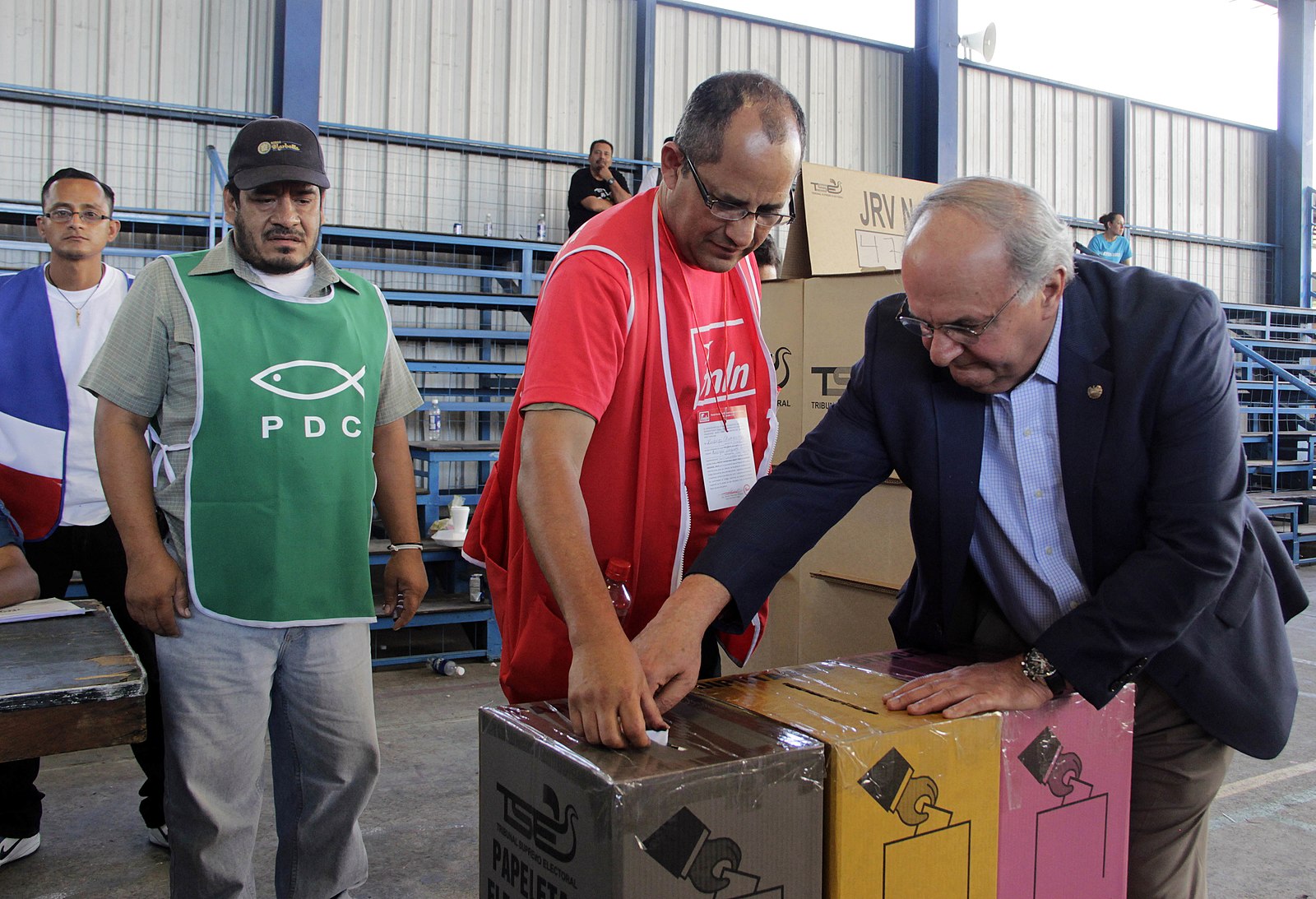
January 27, 2024
A weekly review of news and analysis of elections in the Americas, usually posted on Saturdays and occasionally updated throughout the week.
 Voters in El Salvador in 2015. Photo credit: Wikimedia/Presidencia El Salvador (CC0 1.0)
Voters in El Salvador in 2015. Photo credit: Wikimedia/Presidencia El Salvador (CC0 1.0)
El Salvador Presidential and Legislative Elections: February 4, 2024 and Local Elections: March 3, 2024
Stratfor (January 24, 2024): How El Salvador’s 2024 Presidential Election Could Play Out
Mexico Presidential, Legislative, Gubernatorial, and Local Elections: June 2, 2024
Leonardo Beltrán, Wilson Center (January 22, 2024): The Role of Pemex in the 2024 Elections
James Bosworth, World Politics Review (January 22, 2024): New Corruption Allegations Come at a Bad Time for AMLO
Aida Pelaez-fernandez, Reuters (January 22, 2024): Business leaders flag upcoming election, security as top concerns in Mexico
Carmen Morán Breña, El País (January 20, 2024): Economy and insecurity take center stage as Sheinbaum and Gálvez vie for Mexico’s presidency
Venezuela Presidential Election: Due in 2024 (no date set)
Regina Garcia Cano, AP (January 27, 2024): US condemns ban on Venezuelan opposition leader’s candidacy and puts sanctions relief under review
CNN (January 27, 2024): Venezuela’s opposition accuses Maduro government of ‘repressive escalation’ as court upholds election ban on candidate
Alonso Moleiro, El País (January 26, 2024): Maduro announces military purge and declares Barbados agreements with the opposition ‘mortally wounded’
Fabiola Zerpa and Andreina Itriago Acosta, Bloomberg (January 25, 2024): Venezuela Socialists Officially Name Maduro as Their Candidate
Christopher Sabatini, Foreign Policy (January 25, 2024): The White House’s Big Gamble on Venezuela
Regina Garcia Cano, AP (January 24, 2024): Dueling factions demonstrate in Caracas as Venezuela’s presidential race heats up
Canada General Elections: By October 20, 2025 (earlier elections possible)
Craig McCulloch, Voice of America (January 26, 2024): Canada Starts Inquiry Into Election Interference by China, Others
Vipal Monga, Wall Street Journal (January 24, 2024): India Named in Canadian Inquiry Into Election Interference: Inclusion alongside China and Russia threatens to worsen India’s already rocky relationship with Canada
Argentina General Elections: October 22 and November 19, 2023
CNN (January 24, 2024): Argentine unions hold general strike against new leader Milei’s austerity policies
Colombia Presidential Elections: May-June 2022 (next presidential election due in 2026)
The Economist (January 25, 2024): Colombia’s first avowedly left-wing president is mired in scandal
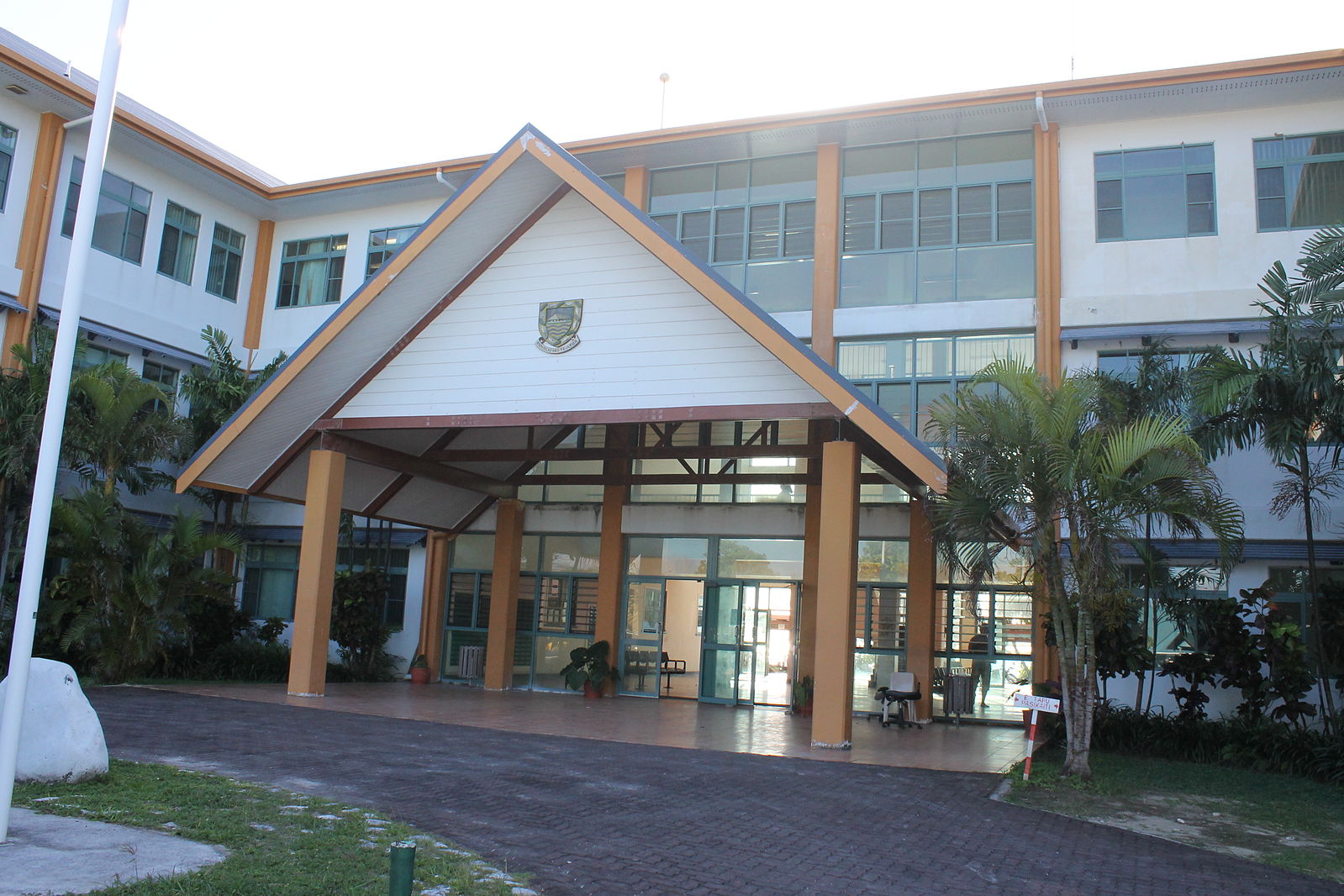
January 26, 2024
A weekly review of key news and analysis of elections in Asia and the Indo-Pacific, usually posted on Fridays and occasionally updated throughout the week.
 Tuvalu’s parliament building. Photo credit: Wikimedia/lirneasia (CC BY 2.0)
Tuvalu’s parliament building. Photo credit: Wikimedia/lirneasia (CC BY 2.0)
Tuvalu General Elections: January 26, 2024
Shaun Turton, Nikkei Asia (January 26, 2024): Tuvalu votes as election spotlights climate migration, Taiwan ties
AP (January 25, 2024): Voting begins in tiny Tuvalu in election that reverberates from China to Australia
Rurika Imahashi, The Diplomat (January 25, 2025): Tuvalu’s Taiwan ties under pressure as election looms
Indonesia General Elections: February 14, 2024
The Diplomat (January 25, 2024): The Maritime Implications of Indonesia’s Presidential Election: Maritime affairs have not been a major campaign issue, but the three candidates’ policies could have far-reaching implications on Indonesian security.
Nikkei Asia (January 23, 2024): Indonesian election highlights young voters’ employment concerns: Jokowi’s successor faces reform challenge to create middle-class jobs
Reuters (January 20, 2024): Indonesia’s Prabowo strengthens lead in election polls
Cambodia Senate Elections (indirect): February 25, 2024
Katrin Travouillon, East Asia Forum (January 23, 2024): Democracy remains a waiting game under Cambodia’s Hun Manet
South Korea Legislative Elections: April 10, 2024
Michelle Ye Hee Lee, Washington Post (January 25, 2024): S. Korean lawmaker struck in head, weeks after opposition leader’s stabbing
Kelly Ng, BBC (January 25, 2024): South Korea: First lady’s Dior bag shakes country’s leadership
Ju-min Park, Reuters (January 24, 2024): ‘Dior bag scandal’ lands South Korea’s Yoon, ruling party in disarray ahead of election
Kim Tong-hyung, The Diplomat (January 24, 2024): North Korea Appears to Demolish ‘Reunification Arch’ as Kim Jong Un Turns Against Ties With South
India Parliamentary Elections: May 2024
Helen Regan and Rhea Mogul, CNN (January 22, 2024): Modi hails a new ‘divine India’ as he inaugurates controversial Hindu temple ahead of nationwide elections
Sri Lanka Presidential Election: September/October 2024 (due)
Neil DeVotta, East Asia Forum (January 25, 2024): Electoral uncertainty casts a shadow over Sri Lanka’s progress
Nepal National Assembly (upper house) Elections: January 25, 2024
PTI (January 26, 2024): Nepal’s ruling alliance wins 18 of 19 seats in National Assembly polls: With the results of the NA election, the CPN-Maoist Centre will be the largest party with 18 seats in the 59-seat National Assembly
Taiwan Presidential and Legislative Elections: January 13, 2024
Naiyu Kuo and Jennifer Staats, United States Institute of Peace (January 24, 2024): Taiwan’s Democracy Prevailed Despite China’s Election Interference
Bhutan Parliamentary Election Runoffs: January 9, 2024
Aditya Gowdara Shivamurthy, Observer Research Foundation (January 22, 2024): Bhutan elections: What is at stake for India?
Bangladesh Parliamentary Elections: January 7, 2024
Mubashar Hasan, The Diplomat (January 26, 2024): Instability Looms Over Post-Election Bangladesh
Syful Islam, Nikkei Asia (January 26, 2024): ‘India Out’ campaign heats up in Bangladesh after lopsided election
Crisis24 (January 23, 2024): Bangladesh: Political gatherings likely to continue nationwide through at least early February following recent general elections
Alexander B. Gray, The National Interest (January 22, 2024): The U.S. Should Remain Engaged in Bangladesh
Prothom Alo (January 19, 2024): Bangladesh’s elections weren’t free and fair, US repeats
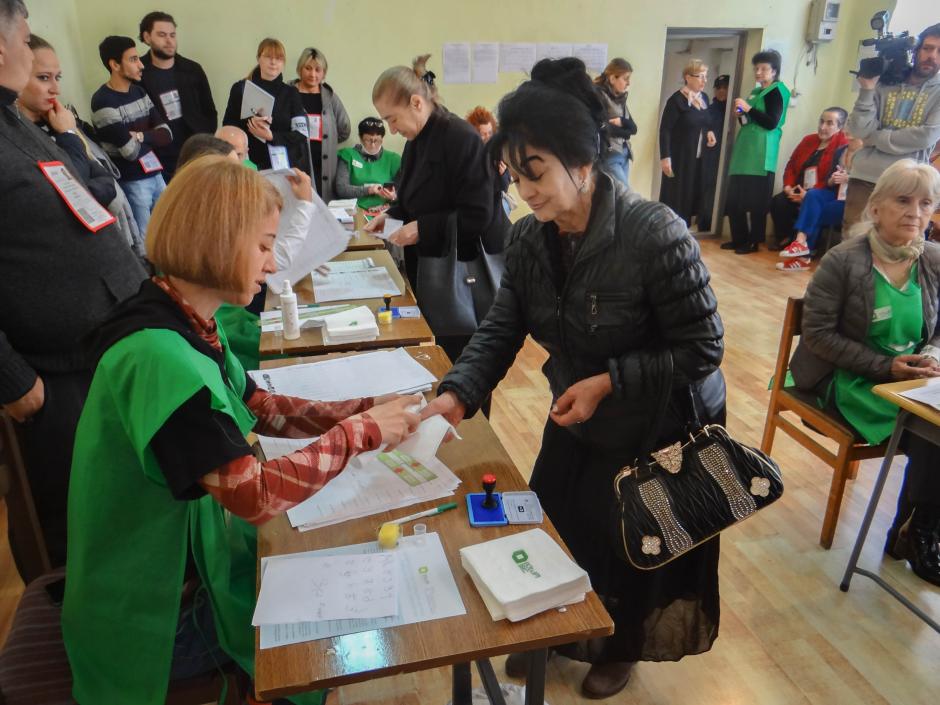
January 18, 2024
A weekly review of news and analysis of elections in Eurasia, usually posted on Thursdays and occasionally updated throughout the week.
 A voter in Georgia’s 2018 elections. Photo credit: OSCE/Thomas Rymer (CC BY ND)
A voter in Georgia’s 2018 elections. Photo credit: OSCE/Thomas Rymer (CC BY ND)
Azerbaijan Snap Presidential Election: February 7, 2024
Siranush Ghazanchyan, Public Radio of Armenia (January 17, 2024): The European Parliament will not observe upcoming presidential elections in Azerbaijan
Cavid Veliyev, Daily Sabah (January 17, 2024): Azerbaijan’s early presidential elections: Preliminary assessment
Reuters (January 17, 2024): Azerbaijan accuses EU of meddling by criticising treatment of jailed journalists
Ismi Aghayev, OC Media (January 16, 2024): Azerbaijan detains 10th media worker ahead of elections
RFE/RL (January 13, 2024): Council Of Europe Urges Armenia, Azerbaijan To Focus On Rights, Safe Return Of Karabakh Refugees
Liam Scott and Alex Gendler, Voice of America (January 12, 2024): Beyond Azerbaijan’s Borders, Journalists Are Wary of Retaliation
Belarus Parliamentary Elections: February 25, 2024
Vindobona (January 16, 2024): Belarus Refuses OSCE Observation of Parliamentary Elections
Meduza (January 12, 2024): Tired but still fighting: Belarusian opposition politician Andrei Sannikov on sanctioning Lukashenko’s regime and freeing political prisoners
Erika Di Benedetto, OCCRP (January 12, 2024): Continuing its Crackdown on Media, Belarus Tries Reporter for Covering Protests
Human Rights Watch (January 11, 2024): Belarus: Crackdown Amid Growing Information Vacuum
Russia Presidential Election: March 17, 2024
Ann M. Simmons, Wall Street Journal (January 17, 2024): The Antiwar Candidate Prepared to Challenge Putin at the Ballot Box
Andrey Pertsev, Carnegie Endowment (January 16, 2024): Russia’s Managed Democracy Is Facing a Participation Crisis
Reuters (January 16, 2024): Putin gathers re-election signatures in Russian-held Ukraine
Reuters (January 12, 2024): Russian election candidate calls Ukraine war a ‘big mistake’ by Putin
Ukraine Presidential Election: March 2024 (due – delay likely)
Dominic McGrath, The Independent (January 17, 2024): Cameron plays down need for presidential election in Ukraine as war continues
Thomas Graham, Council on Foreign Relations (January 17, 2024): Political Hurdles on Ukraine’s Way to EU Membership
Georgia Parliamentary Elections: October 2024 (due)
Giorji Menabde, Jamestown Foundation (January 18, 2024): Georgia Gears Up for Billionaire Bidzina Ivanishvili’s ‘Third Comeback’
Giorgi Lomsadze, Eurasianet (January 18, 2024): Georgia’s Revenant Oligarch: Georgian politics turn into a broken record as the nation’s billionaire boss keeps quitting and un-quitting politics.
Current Time (January 13, 2024): Abkhaz Separatists Say Work Set To Begin On Russian Naval Base In Georgian Region
Atlantic Council (January 11, 2024): EU aspirations and Russian realities: Georgia at the geopolitical crossroads
Moldova Presidential Election: Fall 2024 (due)
Madalin Necsutu, Balkan Insight (January 15, 2024): Moldova in 2024: Reform, Elections, and the Ripple-Effects of War
New Voice of Ukraine (January 15, 2024): Moldova’s President Sandu warns of Russian attempts to destabilize Moldova in spring 2024
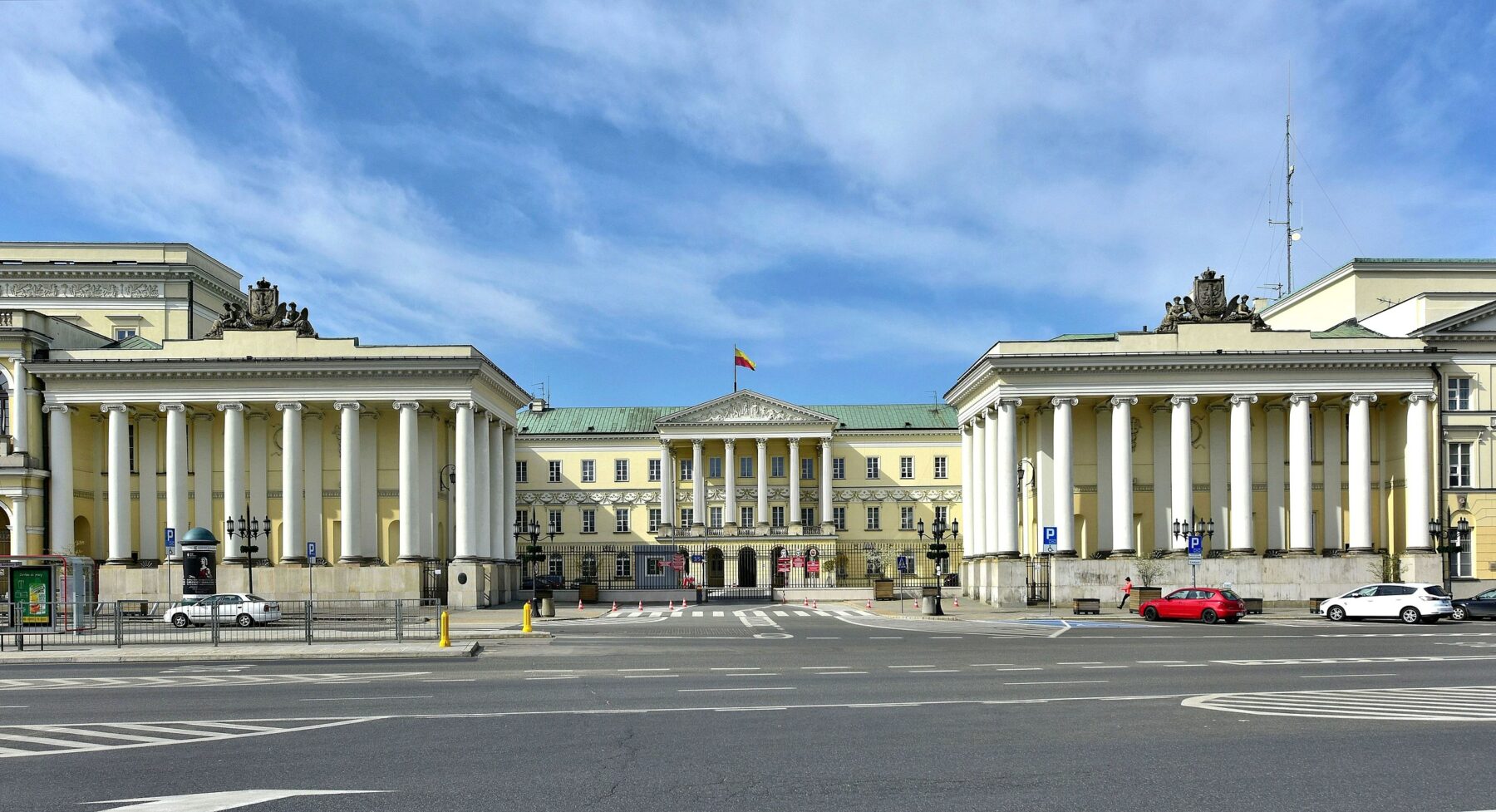
January 17, 2024
A weekly review of news and analysis of elections in Europe, usually posted on Wednesdays and occasionally updated throughout the week.
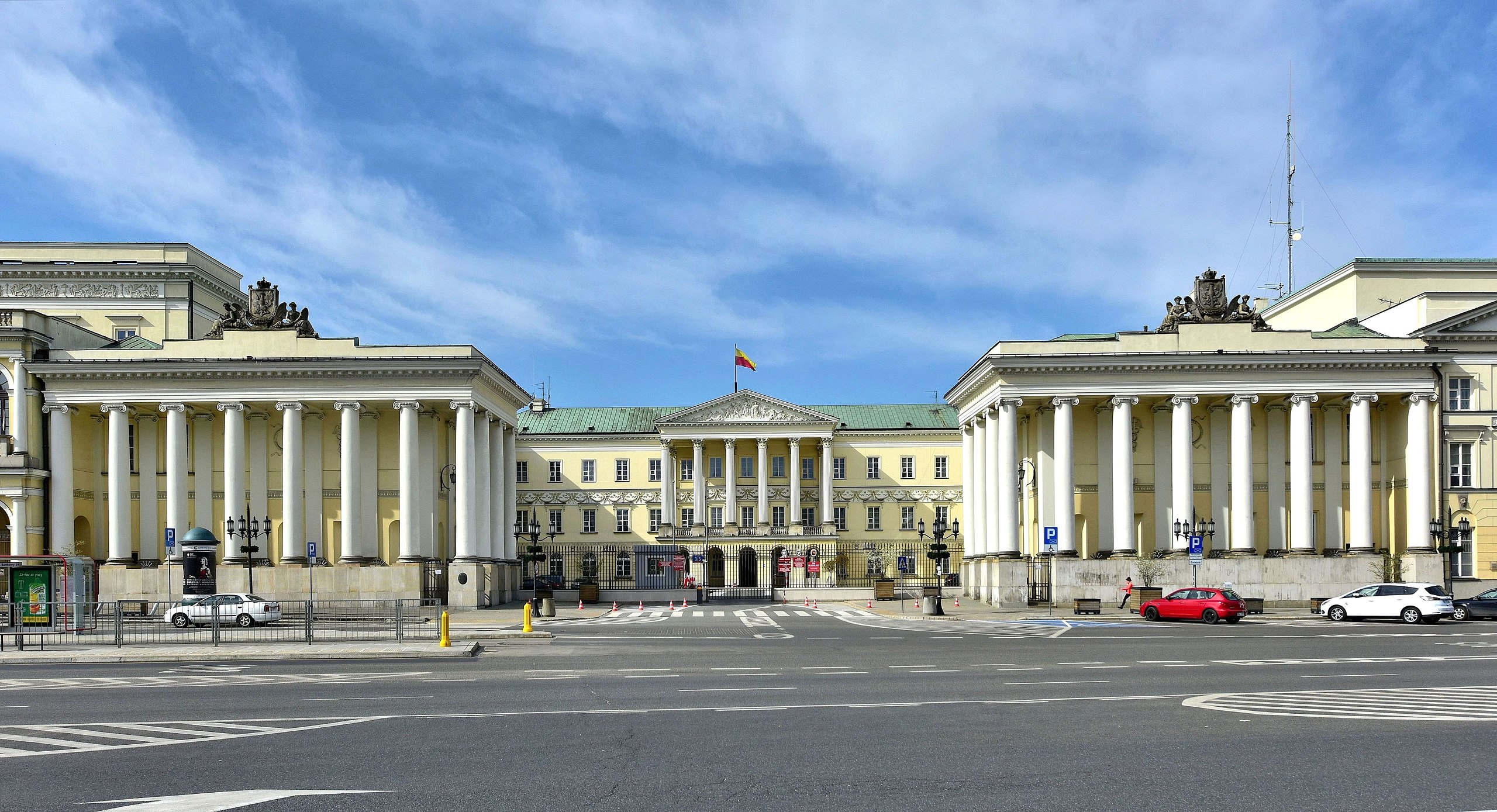 Poland’s Commission Palace, which serves as Warsaw’s City Hall. Poland holds local elections in April following last year’s general elections, which ousted the conservative Law and Justice. Photo credit: Wikimedia/Adrian Grycuk (CC BY-SA 3.0 pl)
Poland’s Commission Palace, which serves as Warsaw’s City Hall. Poland holds local elections in April following last year’s general elections, which ousted the conservative Law and Justice. Photo credit: Wikimedia/Adrian Grycuk (CC BY-SA 3.0 pl)
Finland Presidential Election: January 28, 2024
High North News (January 16, 2024): Alexander Stubb Leads Opinion Polls Before Finland’s Jan. 28 Presidential Election
Anne Kauranen, Reuters (January 12, 2024): Finnish presidential frontrunner Stubb seeks a ‘more European’ NATO
Poland Local Elections: April 7, 2024 (following general elections in October 2023)
AP (January 15, 2024): Poland’s crucial local elections will be held in April, newly appointed prime minister says
AP (January 11, 2024): Poland’s president plans to pardon 2 politicians as tens of thousands hold anti-government protest
European Union, European Parliament Elections: June 6-9, 2024
Jakob Hanke Vela, Politico (January 16, 2024): Nicolas Schmit emerges as Socialists’ top pick for election
Raf Caret, AP (January 14, 2024): The far right may surge in upcoming EU elections. A quiet Dutch town explains why
Amy Kazmin, Financial Times (January 12, 2024): Italy’s Meloni faces friendly fire from Salvini ahead of EU elections: Far-right League leader likely to try and claw back votes after being eclipsed by prime minister
Germany State Elections in Saxony and Thuringia: September 1, 2024 and Brandenburg: September 22, 2024 (federal elections due by October 2025)
Katya Hoyer, UnHerd (January 16, 2024): Could Sahra Wagenknecht be in Germany’s next government? The Left-winger’s new party is polling even with Olaf Scholz’s SPD
Cas Mudde, The Guardian (January 16, 2024): Can Europe’s new ‘conservative left’ persuade voters to abandon the far right?
Reuters (January 13, 2024): New German leftist party could take up to 14% of vote, poll shows
Geir Moulson, AP (January 13, 2024): Germany’s Scholz warns of extremists stoking rage as farmers protest and discontent is high
Romania Presidential Election: November/December 2024 (due)
Madalin Necsutu, Balkan Insight (January 15, 2024): Romanian Farmers’ Protest Over Taxes Pose Dilemma for Govt
United Kingdom General Elections: Due by January 2024 (earlier elections likely)
AFP (January 15, 2024): Millions of Overseas Brits Now Eligible to Vote in UK Elections
Anna Gross, Financial Times (January 14, 2024): How new rules could influence the 2024 UK general election
United Kingdom, Northern Ireland Assembly Elections: By May 2027 (earlier elections possible)
Reuters (January 17, 2024): Britain to delay Northern Ireland elections again, hopeful of deal
AFP (January 17, 2024): N.Ireland To Miss Deadline To Break Political Impasse
Serbia Parliamentary Elections: December 17, 2023
Laura Hülsemann, Politico (January 18, 2024): Senior politicians urge Ursula von der Leyen to probe Serbian election
Jovana Krstic, RFE/RL (January 17, 2024): Serbian Opposition Says Democracy At Stake As Protests Over Elections Resume
Dimitar Bechev, Carnegie Europe (January 11, 2024): Serbia’s Authoritarian (Re)turn
Kosovo Partial Local Elections: April 23, 2023
AP (January 17, 2024): Ethnic Serbs in Kosovo hold a petition drive in hopes of ousting 4 ethnic Albanian mayors
Netherlands Parliamentary Elections: November 22, 2023
Mike Corder, AP (January 17, 2024): Immigration issue challenges delicate talks to form new Dutch government
Bart H. Meijer, Reuters (January 16, 2024): Dutch Senate defies prospective government parties over migration law
France Presidential Election: April 10, 2022 (local elections due in Spring 2026 and general election due April 2027)
AFP (January 17, 2024): France’s new culture minister says will run for Paris mayor, just days in the job
Léonie Allard and Marie Jourdain, Atlantic Council (January 13, 2024): Can Macron’s new cabinet of ‘revolutionaries’ remake French politics?
AFP (January 12, 2024): Macron’s reshuffle tilts French cabinet to the right ahead of EU elections
Politico (January 11, 2024): Macron picks EU liberal leader as new foreign minister in cabinet reshuffle: Macron’s choice for foreign affairs, 38-year-old Stéphane Séjourné, is likely to make waves in both Paris and Brussels.
Michel Rose and Elizabeth Pineau, Reuters (January 11, 2024): France’s Macron poaches conservative veteran in coup ahead of EU elections
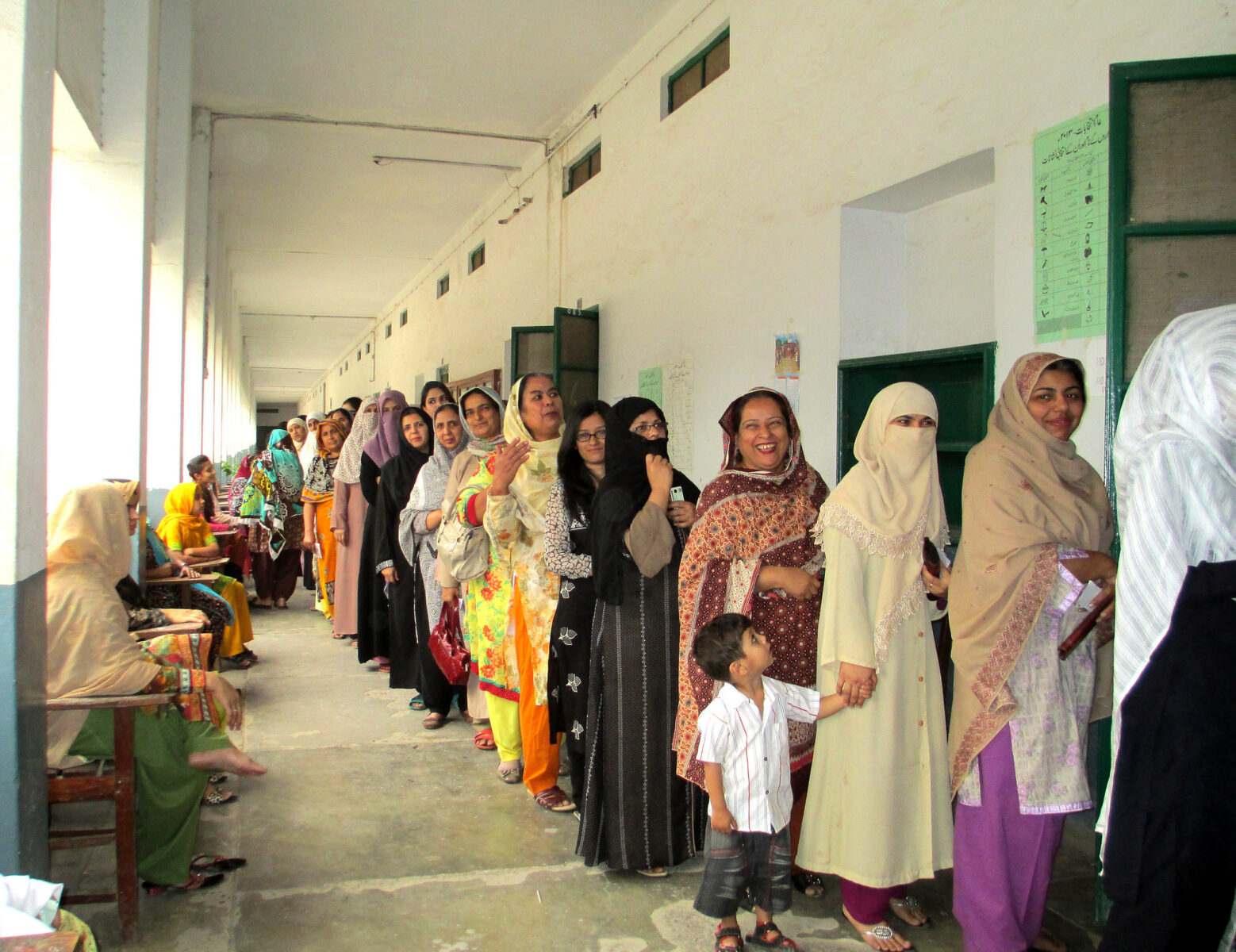
January 16, 2024
A weekly review of news and analysis of elections in the greater Middle East and North Africa, usually posted on Tuesdays and occasionally updated throughout the week.
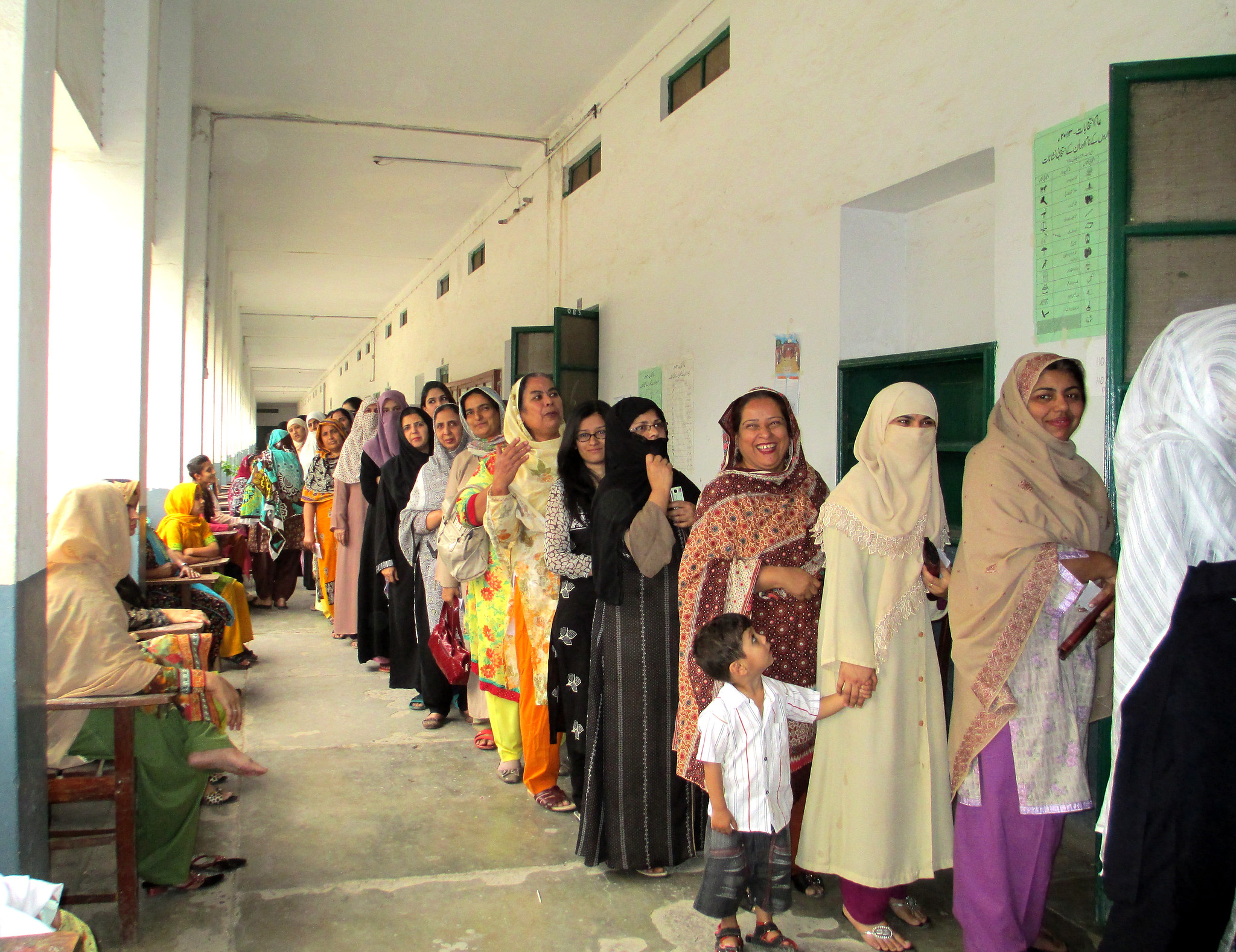 Waiting to vote in Pakistan in 2013. Photo credit: Flickr/DFID – UK Department for International Development (CC BY 2.0)
Waiting to vote in Pakistan in 2013. Photo credit: Flickr/DFID – UK Department for International Development (CC BY 2.0)
Pakistan General Elections: February 8, 2024 (delays possible)
Munir Ahmed, AP (January 16, 2024): Pakistan’s ex-Prime Minister Imran Khan indicted on charge of violating marriage law
Mallika Soni, Hindustan Times (January 15, 2024): Pakistan elections: ‘Missing’ Nawaz Sharif, jailed Imran Khan launch campaigns
Asif Shahzad, Reuters (January 13, 2024): Pakistan’s Imran Khan’s party loses cricket bat electoral symbol
Betsy Joles, Bloomberg (January 12, 2024): Nawaz Sharif Gains Ground on Imran Khan Ahead of Pakistan Polls
Adnan Aamir, Nikkei Asia (January 11, 2024): Pakistan in fight over election delay with less than a month to go
Reuters (January 10, 2024): Pakistan election candidate shot dead while campaigning
Iraq, Kurdistan Regional Elections: February 25, 2024 (delayed)
Rudaw (January 10, 2024): Iraqi commission to set new agenda for Kurdish elections: Official
Israel Local Elections: February 27, 2024 (general elections due October 2026 but earlier election possible)
Times of Israel (January 13, 2024): Thousands call for ‘elections now’ during rally at Tel Aviv’s Habima Square
Iran Legislative Elections: March 1, 2024
Jeyhun Ahmadli, Geopolitical Monitor (January 11, 2024): Fair or Fake? Iran Readies for Key Elections in 2024
Turkey Local Elections: March 31, 2023
Bloomberg (January 15, 2025): Turkey Releases Israeli Footballer Detained Over Hamas War Message
Herb Keinon, Jerusalem Post (January 15, 2024): For Erdogan, arrest of Israeli soccer player makes good politics before local elections
Adam Samson, Financial Times (January 13, 2024): Turkey tightens internet censorship ahead of elections